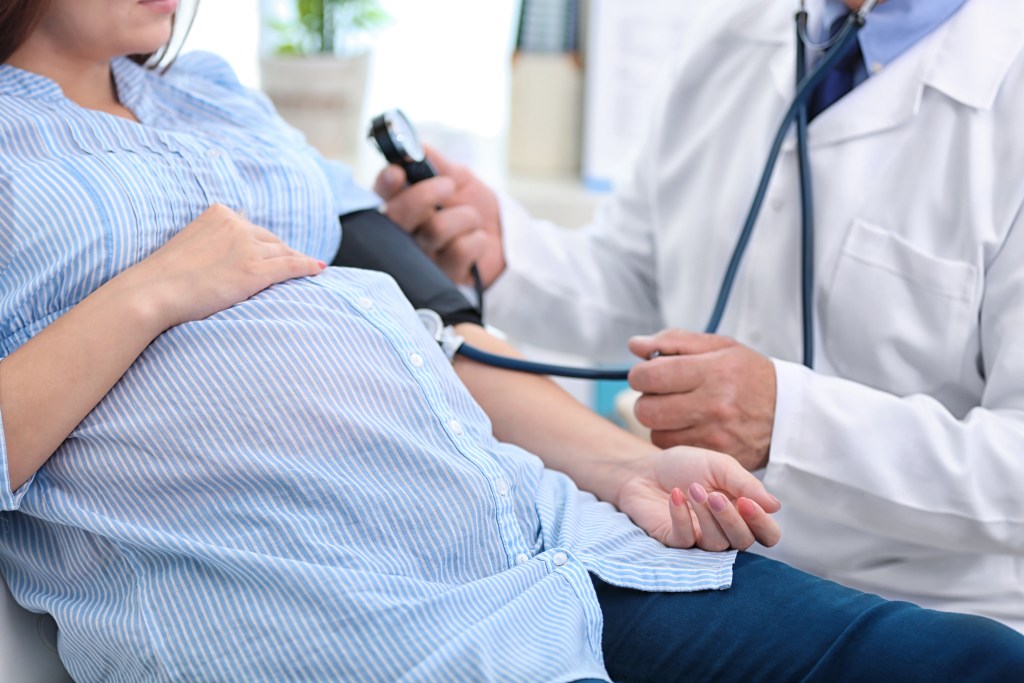Pregnant after 30: Dr. Seale Discusses Health Differences and Risks
- Category: Women's Health, Motherhood & Pediatrics
- Posted On:

Statistics show that more women are delaying starting a family. It isn’t surprising that as life expectancy has inched upward, the average mother has become older as well. However, as your body ages, the risk for some pregnancy complications also increases. With a healthy lifestyle and proper prenatal care, it’s entirely possible to have a healthy pregnancy and birth after age 30. Dr. Fred (Rocky) Seale, OB/GYN, shares more about what women should know about having a baby later in life.
Women are sometimes warned that “time is running out” to have a baby. Is that true?
Yes and no. Yes, it’s true that a woman is born will all of the eggs that she will ever have. With each normal menstrual cycle occurring after onset of puberty, a certain number of them will be used up. By the time of the decade leading up to menopause (which occurs on average at age 51 in the US), the majority of eggs have been expended.
Does fertility decrease with age?
A woman is still fertile until menopause occurs, but her ovulatory function, and therefore her chances of achieving pregnancy, may not be as robust as it was in her 20’s and early 30’s.
The longer a woman waits to start attempts a pregnancy, especially if she waits until her late 30’s or 40’s, there is a higher chance that she will encounter difficulties achieving pregnancy, and may need assistance from an infertility specialist.
Are there health risks associated with a later pregnancy?

One health concern with advancing maternal age is the simple fact that disease processes including hypertension, heart disease, and diabetes increase as we get older. Therefore, these sorts of processes complicating pregnancy, or occurring as a result of pregnancy, are more common.
Are there health risks that may affect the baby?
With advancing age, the risk for having a baby with a chromosomal abnormality such as Down Syndrome increases. We believe this is related to the fact that most of a woman’s lifetime supply of eggs has been used up by that time, and the remaining eggs may be more likely to contain genetic abnormalities. Age 35 is traditionally used as the cutoff when this risk reaches a significant level (with genetic abnormalities occurring in approximately 1 in 200 pregnancies). However, it is not as though the risk suddenly shoots up between age 33, 34, 35, etc. There is a steady increase in the risk occurring as a woman ages. By the time a woman reaches age 40, that risk could be as high as 1 in 30.
I always remind patients that the risk of a genetic abnormality may be 1 in 200 or 1 in 30, but that also means there is a 199 in 200 or a 29 in 30 chance that things will be fine. The risk may be higher than it was when they were in their 20’s, but even then, their risk was not zero.
It is important for couples to discuss this risk and understand the numbers. If desired, testing can be performed to identify genetic abnormalities early in pregnancy.
How can women maximize their chance of becoming pregnant?

Just pay attention to your general state of health, and maximize that as much as possible. Prioritize eating a healthy diet, getting regular exercise, and maintaining a healthy weight. It’s also a good idea to take a prenatal vitamin before you become pregnant; the developing baby will benefit from the folic acid that you have taken before pregnancy occurs.
What’s your best advice for those who want to become pregnant later in life?
Manage Stress
Stay as healthy as possible and try not to get too stressed if achieving pregnancy is initially difficult. Stress itself can cause fertility issues. Unfortunately, I do not know the magic solution to eliminating stress, but any activity or hobby that is useful for you to reduce you stress level is key.
Talk to Your Doctor Early
Also, have a lower threshold to talk to your doctor about difficulty getting pregnant. Typically, a couple will be advised that inability to conceive is not a “problem” until it has been 12 months of unsuccessful attempts at pregnancy. That is generally good advice for younger couples because most will go on to achieve pregnancy spontaneously if they continue trying on their own for that long.
For older couples, for whom the clock may actually be ticking, it is best not to waste precious time. I would encourage them to talk to their doctor after three or six months to determine if some treatment, or referral to a fertility specialist, may be indicated.
***

Dr. Seale is an OB/GYN at our Women’s Center in McKay Dee Hospital. To schedule a visit with him, call 801-475-3240 or request an appointment online.